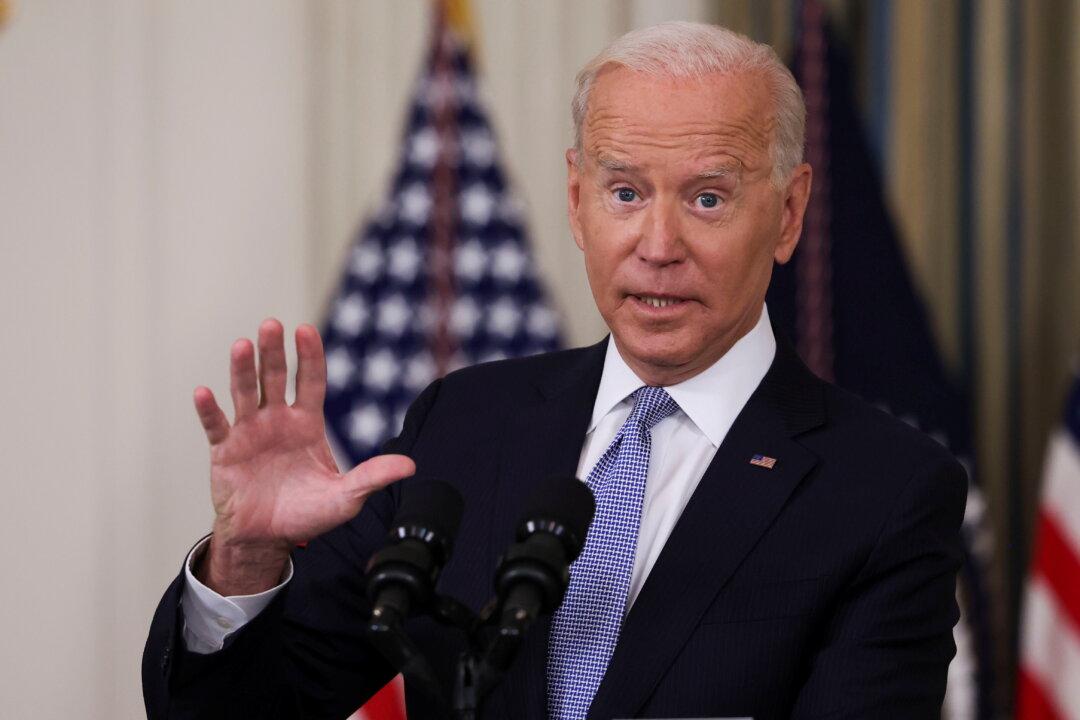While COVID-19 vaccine booster shots are now available to tens of millions of Americans, President Joe Biden signaled on Sept. 24 that the boosters will in the future be authorized for practically anybody.
The Food and Drug Administration last week expanded emergency use authorization for Pfizer’s COVID-19 vaccine, enabling certain groups to get a third dose of the jab. The Centers for Disease Control and Prevention (CDC) recommended that anybody 65 or older get an additional Pfizer shot and allowed that many people 18 or older such as teachers or health care workers could get a Pfizer booster.





